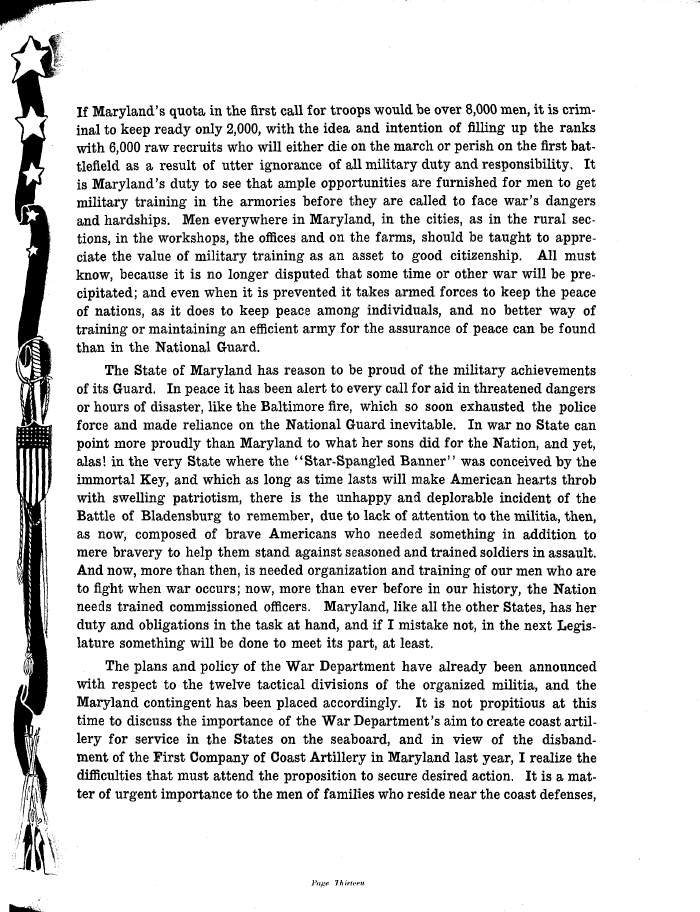 |
||||
 |
||||
| If Maryland's quota in the first call for troops would be over 8,000 men, it is criminal to keep ready only 2,000, with the idea and intention of filling up the ranks with 6,000 raw recruits who will either die on the march or perish on the first battlefield as a result of utter ignorance of all military duty and responsibility. It is Maryland's duty to see that ample opportunities are furnished for men to get military training in the armories before they are called to face war's dangers and hardships. Men everywhere in Maryland, in the cities, as in the rural sections, in the workshops, the offices and on the farms, should be taught to appreciate the value of military training as an asset to good citizenship. All must know, because it is no longer disputed that some time or other war will be precipitated; and even when it is prevented it takes armed forces to keep the peace of nations, as it does to keep peace among individuals, and no better way of training or maintaining an efficient army for the assurance of peace can be found than in the National Guard. The State of Maryland has reason to be proud of the military achievements of its Guard. In peace it has been alert to every call for aid in threatened dangers or hours of disaster, like the Baltimore fire, which so soon exhausted the police force and made reliance on the National Guard inevitable. In war no State can point more proudly than Maryland to what her sons did for the Nation, and yet, alas! in the very State where the "Star-Spangled Banner" was conceived by the immortal Key, and which as long as time lasts will make American hearts throb with swelling patriotism, there is the unhappy and deplorable incident of the Battle of Bladensburg to remember, due to lack of attention to the militia, then, as now, composed of brave Americans who needed something in addition to mere bravery to help them stand against seasoned and trained soldiers in assault. And now, more than then, is needed organization and training of our men who are to fight when war occurs; now, more than ever before in our history, the Nation needs trained commissioned officers. Maryland, like all the other States, has her duty and obligations in the task at hand, and if I mistake not, in the next Legislature something will be done to meet its part, at least. The plans and policy of the War Department have already been announced with respect to the twelve tactical divisions of the organized militia, and the Maryland contingent has been placed accordingly. It is not propitious at this time to discuss the importance of the War Department's aim to create coast artillery for service in the States on the seaboard, and in view of the disband-ment of the First Company of Coast Artillery in Maryland last year, I realize the difficulties that must attend the proposition to secure desired action. It is a matter of urgent importance to the men of families who reside near the coast defenses, Puff Thirteen |